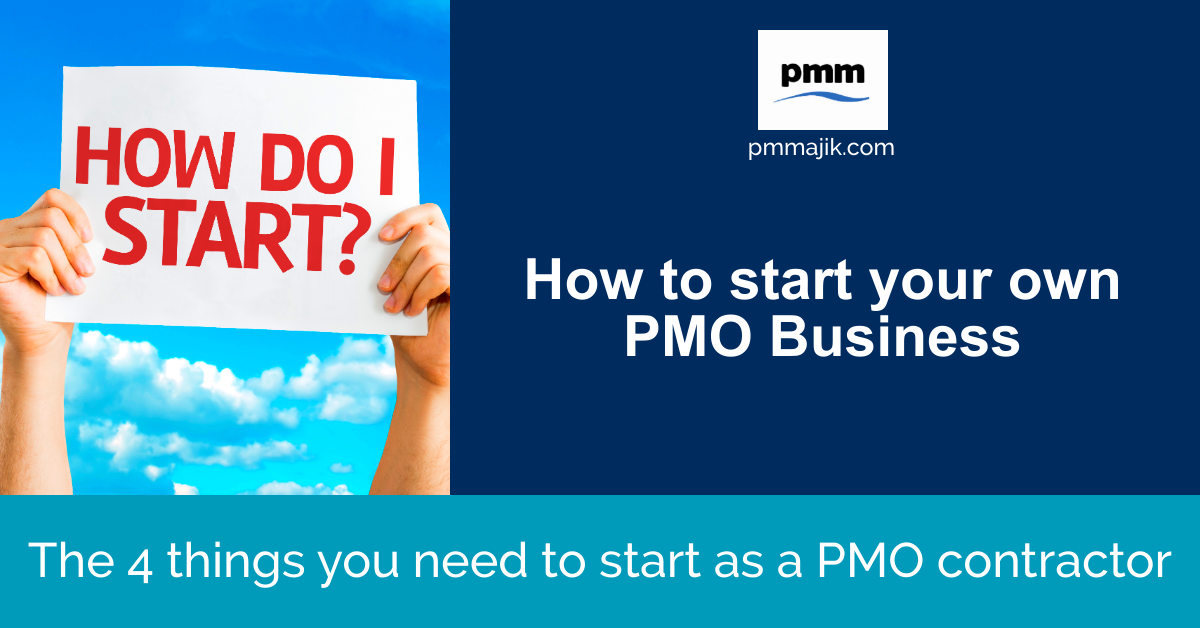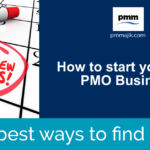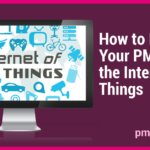When you’re ready to start your next career step and become a project management (PMO) contractor, you need to get your ducks in a row. Outsourcing PMO tasks is becoming increasingly common, so if you want to take advantage, here are the four things you need to start as a PMO contractor.
Going freelance or starting a small PMO consulting or contracting business is a challenge that has the potential for lots of rewards. You get to be your own boss, specialise in an area of your choosing, and pick the clients you work with.
As you plan your transition to a PMO consultant, you need to consider:
- Developing your professional experience
- The certifications and qualifications you’ll need
- What soft skills you should develop and highlight
- Business structure and tax details
So you’re ready to hit the ground running with your new venture.
What experience does a PMO consultant need?
To be a professional PMO consultant or contractor, you need to have direct experience working in a project management office. It’s specialised work that requires hands-on experience of how processes are implemented.
As we’ll see in a moment, for many PMO certifications, you also need industry experience.
If you’re looking at being a PMO contractor into the future, it’s worth figuring out your career path through the office you’re in. Try and work with or in different parts of a PMO to get a grounding in all aspects of the work.
You can also slowly start to build a freelancer profile as a side gig, as long as you take care not to burn yourself out. You probably won’t be in a position to take on a full PMO contract, but you can look to take on other PMO contract work such as spreadsheet work, setting up a project, creating a plan, etc.
What certifications does a PMO contractor or consultant need?
There are lots of PMO certifications to choose from, and it’s likely you’ll be aware of them when you work in a PMO. Although not mandatory to be a contractor, it is an independent way for your clients to verify you know what you’re talking about.
It also demonstrates a commitment to your PMO career when you invest in project management and PMO certifications.
Be sure to pick the one relevant to your industry and location. PMP and PRINCE2 are the two most popular certifications – the former more accepted in North America and the latter in Europe and South Asia, for example.
Check the software and tools that are common in your industry and seek vendor certifications as well – this will pay dividends as a freelancer.
What soft skills should a PMO consultant or contractor highlight?
Along with having in-demand PMO skills, there are soft skills to work on when you want to be a PMO freelancer. You’ll be running your own business, so you need to develop parts of your professional life to cater to that.
Some soft skills that’ll stand you in good stead as a PMO consultant include:
- Relationship building – in your PMO role, you’ll potentially have relationships with contractors, other business areas, and end-users. Develop your interpersonal skills so you can build relationships with potential clients and subcontractors in the future.
- Collaboration – you’ll need to be able to slot into different teams and business structures and work with the team already in place, so work on how to get the best out of people in challenging situations.
- Time management – organisation is crucial to any PMO, but running a PMO consulting business will need even more coordination, allocation of your time, and efficient working practices to get the results you’re contracted to deliver.
What else do I need as a PMO contractor?
As you move towards setting up your PMO contracting business, you need to be aware of your business and tax rules. Every country will have different self-employed and small business rules, so be ready to learn about that side of running a business.
You should also consider developing a list of freelance contacts that you can subcontract to when your PMO contracting business takes off.
Starting your PMO contracting business
Moving to being a PMO contractor has the potential for higher income and the opportunity to work on the parts of a PMO that you enjoy the most. Our list of the four things you need to start as a PMO contractor will help you prepare to step into the world of consulting and freelancing.






